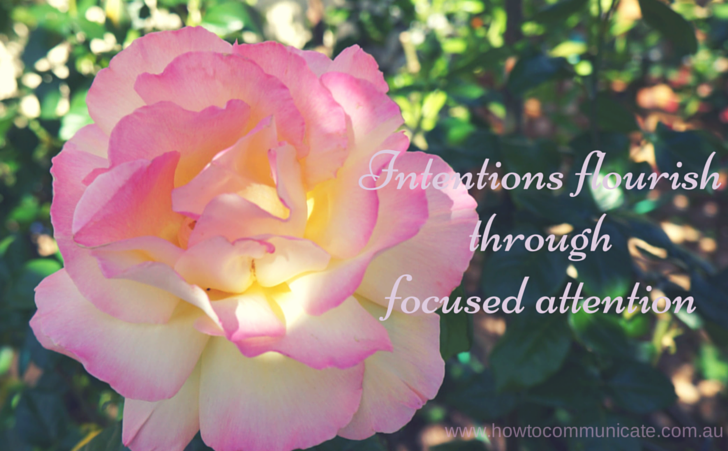Each day, my first intention is to fill a blank page with words. My second is to make those words, good words. A difficult task, especially as my computer is a wellspring of distractions. A few keystrokes deliver my Facebook and Twitter feeds, e-mails with the latest books, great buys, latest news from blogs I follow, and from the interweb, information on any subject I could wish to read (I call it research).
All this before I even think about paying attention to my intentions.
Attention has become a valuable commodity. And as the amount of information grows, it’s becoming scarcer. Attracting attention is difficult with all the noise out there. And in our ‘always -on’ society, it’s even more difficult to focus our attention on the things that are important to us. Nobel prize-winner, the economist Herbert Simon said that information, “consumes the attention of its recipients. Hence, a wealth of information creates a poverty of attention”.
We live in a constant state of interruption – texting, tweeting, reading, updating and responding. Always turning our attention to anything new in our environment — that is, on our digital devices. Never focusing on one task for a sustained period. Never giving our full attention to the people we’re with. Social critic Linda Stone coined the phrase, “continuous partial attention”, to describe the way we pay partial attention, continuously.
Perhaps it is a fear of missing out, or a false sense of meaningful connection to each other, or maybe it’s our craving for instant gratification. But in this “culture of distraction”, as Maggie Jackson, author of Distracted: The erosion of attention and the coming Dark Age describes it, how do we manage to get anything done? How do we build and sustain good relationships? How do we communicate meaningfully?
Good relationships are built on focused attention. You can’t communicate with people, let alone form meaningful relationships with them if you don’t give them the courtesy of your undivided attention. The reverse is also true. Have you ever come away from a meeting with someone and felt that your message was misunderstood, or that you weren’t heard — because your companion was distracted by her beeping phone, or had to take that call, or send a quick message?
The way we use our attention, says Linda Stone “shapes our reality. It is both powerful and fragile”. Therefore, don’t we owe it to ourselves to give our full attention to our intentions? We have goals to achieve, relationships we want to nurture and passions we would like to fulfil.
Today, the page is no longer blank. It wasn’t easy. I had to make deliberate choices, practice self-restraint, and the simple act of writing one word, then another, and another, to fulfil my first intention. The second, well, that’s for you to judge.
By considering the intentions we want to give attention to—whether in our conversations, tasks, writing and other activities—changes our experiences, feelings, and the results we achieve.
Are you paying attention to your intentions, or is it blowing in the wind?
Do you have any advice to offer? We’d love to hear it!




[…] I will pay more attention to my journey to that inner world. I’ll use my Monday morning ritual, calm my mind and put the […]